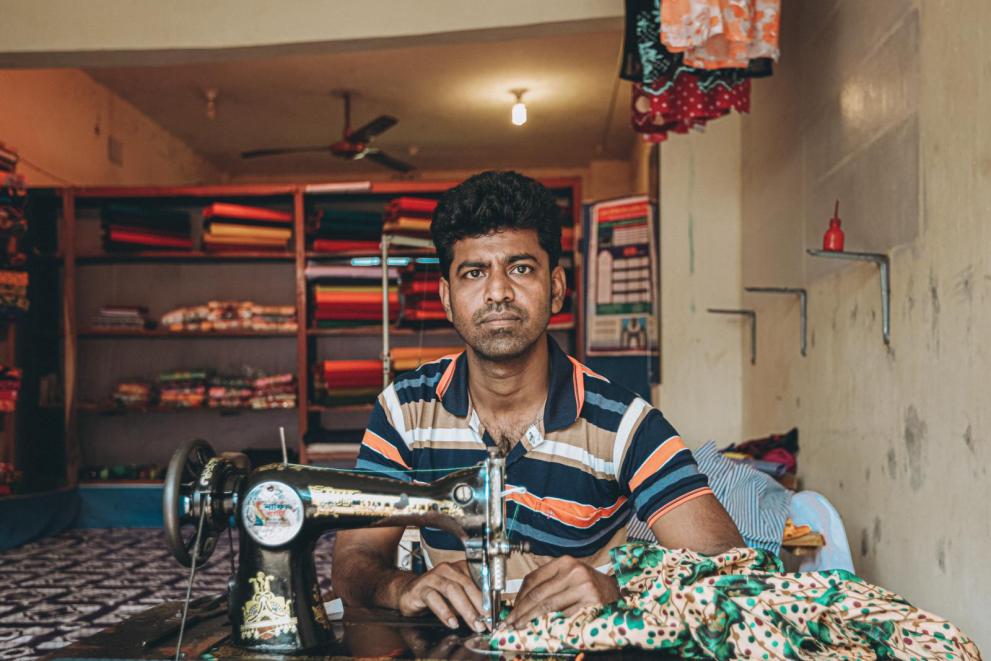
Today, as part of the EU's global response to the coronavirus outbreak, the EU - through its Emergency Trust Fund for Africa (EUTF) - has adopted a new assistance package to protect migrants, stabilise local communities and respond to COVID-19 in North Africa. This package includes €80 million in new funds as well as €30 million reallocated from non-contracted actions under the EUTF.
In line with the Joint Communication on the global EU response to COVID-19, this new funding will also strengthen the immediate response capacity, reinforce the health systems and services in the North African partner countries, mitigate the socio-economic impact of the crisis, as well as allow for the continuation of actions to protect refugees and migrants and stabilise local communities.
Commissioner for Neighbourhood and Enlargement, Olivér Várhelyi, said: “With today’s substantial and targeted assistance package we are responding to the urgent needs to fight the COVID-19 crisis and address the needs of some of the most vulnerable groups in North Africa, in particular refugees, migrants and displaced persons. In Libya, while the armed conflict continues, the EU Emergency Trust Fund for Africa has already supported over 200,000 beneficiaries with hygiene kits and medical assistance and over 1.7 million people have now better access to basic services in local communities, thanks to the renovation of health centres.”
Support to Libya
Libya remains the biggest beneficiary under the North of Africa window of the EU Emergency Trust Fund for Africa, with €455 million in programmes, with the majority going to protection of migrants and refugees and community stabilisation, alongside actions for border management.
As part of the EU’s comprehensive approach and support on migration in Libya, three new programmes adopted today will improve the resilience of both Libyans and migrants for the health challenges arising from the coronavirus pandemic:
• A €30.2 million protection programme will provide protection services to migrants and vulnerable groups, such as health assistance to treat tuberculosis, non-food items, emergency cash assistance and emergency evacuations outside of Libya (when travel restrictions are lifted);
• A specific €20 million COVID-19 programme will strengthen immediate response to the virus, including personal protective equipment and training for health staff; the strengthening of laboratory capacities and intensive care response. It will also reinforce the health system and services in the country in the medium term;
• A €25 million community stabilisation programme to continue to improve the living conditions in the Libyan municipalities, in particular in the South, by enhancing access to basic and social services.
In order to fund these essential new actions, €30 million has been re-allocated from existing Border Management programmes in Libya, which will now amount to €57.2 million. While Border Management in Libya remains a priority in order to continue to save lives at sea, the reallocation of funding reflects the need to adapt existing actions to the changing security situation on the ground. The revised Border Management programme will strengthen the Libyan Coast Guard and Port Security’s capacity for search and rescue activities and prevention of migrant smuggling, support the maintenance of boats, provide further training as well as support the establishment of the Libyan Maritime Rescue Coordination Centre.
Support to Tunisia
In Tunisia, two new programmes will strengthen support to migrants and the most vulnerable groups, who may be particularly hard hit by the current crisis:
• A €9.3 million governance and protection programme to provide protection services to vulnerable migrants, improve access to health services as well as to continue to support migration governance and to the Tunisian-led service for the reintegration of returnees hosted by the ‘Office des Tunisiens à l’étranger’ (OTE);
• A €5 million skills mobility programme built on two bilateral mobility agreements in place between France and Tunisia for young professionals and seasonal workers, based on the principle of circular mobility and for workers to gain needed skills in the country of origin.
Regional COVID-19 response
A new €10 million COVID-19 fast track emergency response programme has also been adopted to support the most vulnerable populations in North Africa tackling their emergency needs as well as the social and economic consequences of the crisis in order to contribute to the national efforts already in place.
Other regional initiatives
A €3.7 million regional child protection programme, with a focus on Libya and Egypt, has been adopted to improve the protection and expand access to sustainable solutions for unaccompanied and separated children and youth along the Central Mediterranean Route.
€6.5 million was also adopted to fund a Technical Cooperation Facility to ensure effective monitoring and evaluations of all the actions implemented under the North of Africa window of the EU Emergency Trust Fund of Africa.
Background
The EU Emergency Trust Fund for Africa was established in 2015 to address the root causes of instability, forced displacement and irregular migration and to contribute to better migration management. The Trust Fund covers three windows: the Sahel and Lake Chad, the Horn of Africa, and the North of Africa.
Today’s assistance package brings the total funding mobilised through the North of Africa window of the EU Emergency Trust Fund for Africa to nearly €888 million since its launch in 2015. The new funding was approved by the Operational Committee of the Trust Fund, which brings together the European Commission, the EU Member States, the United Kingdom, Norway and Switzerland. Observers of the Operational Committee include partner countries such as Algeria, Egypt, Libya, Morocco and Tunisia as well as Members of the European Parliament.
The Trust Fund is also reorienting ongoing interventions in key sectors in Libya to mitigate the impact of the coronavirus pandemic. Reallocation of existing actions in Libya allowed implementing partners to provide personal protective equipment, hygiene kits, training to medical staff as well as awareness campaigns to prevent the spread of the virus among vulnerable groups.
Check the press release here: https://ec.europa.eu/commission/presscorner/detail/en/ip_20_1244
Details
- Publication date
- 2 July 2020
- Region and Country
- North of Africa
